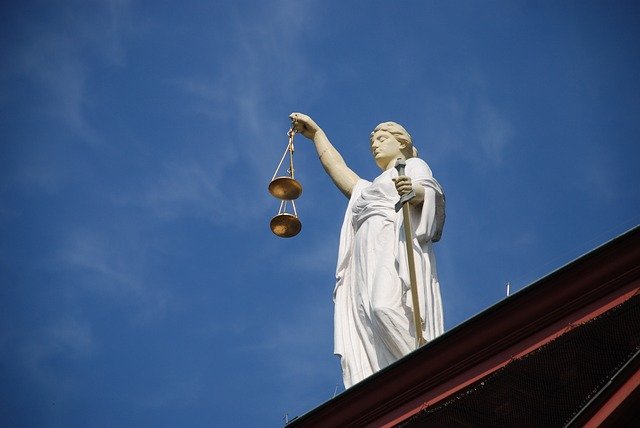
Being a landlord isn’t an easy task. Landlords have a lot of responsibilities when it comes to renting their investment properties, working with their tenants, and keeping the property well-maintained.
But what are the main elements involved in this demanding position? Today, I’m going to provide you with my Top List of 8 Critical Landlord Responsibilities.
If you’re a rental property owner, and you’re not down for taking on these responsibilities yourself, then, well, it’s time to hire a property manager.
1. Comply With Anti-Discrimination Laws
Before you advertise a vacant apartment or rental home, it’s crucial that you understand fair housing laws. What you say and do when selecting tenants, if you’re not careful, could result in a costly discrimination complaint and possible lawsuit.
Simply put, you cannot do or say anything which results in discrimination based on their race, religion, national origin, sex, gender identification, sexual orientation, familial status, physical or mental disability, receipt of public assistance, and now more recently, damage to credit and previous financial difficulties as a result of COVID-19 impact.
2. Prepare a Legal Written Lease or Rental Agreement
The rental agreement or lease signed with a tenant is the contractual basis for tenancy, full of crucial critical details about the landlord-tenant expectations. Taken together with federal, state, and local landlord-tenant laws, your lease or rental agreement sets out all the legal rules you and your tenant must follow.

Conflict can occur when landlords include illegal clauses in the lease or when landlords fail to provide proper disclosures regarding the property. For everyone’s benefit, clarity should be prioritized when preparing a lease or rental agreement.
3. Make Legally Required Disclosures
Landlords must make certain disclosures to tenants if they know facts about the property deemed to be important. Not being transparent in this regard can lead to serious consequences.
For example, is there lead paint in the home? Has there been previous mold issues and have these been corrected, and are there possible cancer or reproductive harm chemicals to be disclosed under proposition 65? These are all vital to disclose prior to accepting a tenancy.
4. Know the Rules Regarding Security Deposit
Security deposits are one of the biggest areas of landlord/tenant disputes and small claims cases. To avoid these types of conflict, you need to know the laws about security deposits: how much you can ask for security, what can be charged when the tenant moves out, and the timeframe within which the deposit disposition needs to be documented in writing with a balance returned to the former tenant.
It’s also in your best interest to have a firm understanding of excessive damage vs normal wear and tear. By knowing how these two differentiate, you will have a clearer view of where the responsibility lies, and determine whether or not you can deduct repair costs from the security deposit.
5. Follow Landlord-Tenant Law
There are lots of overall rules and laws in place regarding landlord-tenant law and it can, at times, be daunting. These laws include things such as when you can raise the rent, how a landlord may terminate a tenancy, how to evict a tenant who hasn’t paid rent, and notices to provide when there is a failure to pay rent or another breach of the lease agreement.

If you own rental property in San Francisco, Berkeley, Los Angeles, or one of the 16 California cities with rent control, you need to be aware of those local ordinances too. Each city can have its own legal quirks when it comes to rental laws.
6. Provide Habitable Housing
In California, landlords are required to keep their rental unit habitable under a legal doctrine called the “implied warranty of habitability.” Tenants have the right to live in a clean, functional space.
If you don’t keep up with important repairs that are essential to the living space (things like heating, hot water, working appliances, locking doors/windows), tenants in California may have several options. These may take the form of rent withholding, claim of injuries due to defective conditions in the rental, or early termination of the lease.
7. Respect a Tenants’ Privacy
There are limits to a landlord’s access to the rental property. In California, landlords must provide 24 hours notice to enter unless the tenant gives their permission otherwise.
Managing property access and maintenance at the property is a critical aspect to keep good tenant relationships and not infringe on the tenant’s right to peaceful enjoyment of the home. Be sure to also request access to the rental property within reasonable hours, not 12 am, for example. The exception is, of course, in emergencies.
8. Don’t Retaliate Against a Tenant Who Exercises a Legal Right
It is illegal to retaliate in California—for example, by attempting to raise the rent or evict a tenant for complaining about an unsafe living condition. To avoid problems, or counter false retaliation claims, establish a good paper trail to document how you handle repairs and other important facts of your relationship with your tenant.
Bottom Line
That’s my list! Being a landlord means juggling a fair amount of responsibilities on a day-to-day basis. It can be overwhelming when you’re just starting out. However, with enough time, these responsibilities are all things you can master.
There are many important aspects I’ve not covered, so if you have any questions or would like to discuss further details, don’t hesitate to reach out.
Alternatively, if you’ve found that these responsibilities are too demanding, consider hiring our property management company! With PURE Property Management’s services, you’ll bypass the learning stage and head straight for the rewards of being a rental property owner. We’d be happy to speak to you about how we can best help your real estate investment pursuits.